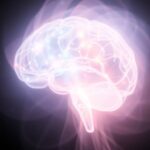The terms ‘awakening’ and ‘enlightenment’ are often used in a very loose way where they mean a range of things which depends on the experience and knowledge of each individual using the term. In this sub I have seen colloquial uses of the terms, metaphorical, allegorical, etc. This post intends to zero in on more technical and original meanings of the terms in hopes of honing the precision of the language we are using when communicating about these ephemeral and loaded concepts. I’m still a young student of the path with very limited understanding so this is just a mix of my current understanding, references to my experiences, and some musings on the involved topics.
Two important things to keep in mind when thinking about these concepts and any other terms involved in their realization:
- ‘Awakening’ and ‘enlightenment’ are translations of terms that originated in ancient cultures thousands of years ago. One can spend a lifetime studying sanskrit just to properly understand the meaning nuances loaded into these words and all the terms that explain these words. The point I am making here is not to rely on your intuitions or linguistic associations of the words because that’s a very surface level of understanding and engagement with the terms. Instead, reference as much source material for studying these as possible if you HAVE to talk about them.
- No matter how well read you are and how well logically you understand what these terms could be pointing to, if you don’t have a direct experience of them or their constituent parts, you have no idea what they actually mean. Same as a person who never tried a kiwi will not know what the heck it is until they try it no matter how much they read about it.
Keeping these in mind should allow one to remain humble and curious on the learning path until they get a direct experience that they will recognize as matching some of these descriptions. The ability to recognize and match one’s experiences to these terms is a whole other problem but some of the experiences are much more distinct(for example, once you’ve experienced bouts of compassion flooding you or the joyful flows of equanimity, you’d be able to link them to the words pointing at these experiences without much difficulty).
I know not everything in the The Mind Illuminated book is accepted universally but it has a great amount of well structured material and a lot of good references to original sources for many of these concepts(this is the book I used to learn the basics of meditation in a structured way). For that reason I quote this part from it:
Awakening means understanding reality as it is, rather than as we mistakenly believe it to be. This also means understanding the true nature of the mind. Through realizing this truth at a deep, intuitive level—as opposed to a merely conceptual level—true wisdom is gained, freeing us from ignorance, delusion, dissatisfaction, and suffering. Prior to Awakening, we are trapped not by external conditions, but by our own misperceptions and prejudices. Awakening usually happens incrementally, by stages. The Theravada distinguish four incremental “paths” of Awakening known as sotāpatti, sakadāgāmi, anāgāmi, then arahant. The Mahayana distinguish a larger number of incremental stages called bhumis. Readers will hopefully experience multiple levels of Awakening in the course of this practice. However, whenever we refer to Awakening in the text, we usually mean achieving First Path, commonly referred to as stream-entry or sotāpatti.
Big emphasis on the fact that awakening happens in waves or rounds. It makes sense too because if one was able to cognize all the truth there is, one would be God. Instead, we have to get there bit by bit. It’s just like learning, just like going to school and finding out new concepts, then building further knowledge on top of them. Except on the spiritual path we use the science of direct experience to learn about the true nature of reality first hand.
The language is just an aid on the way there but make no mistake that eventually direct experience supersedes all words and “knowledge”, eventually those become obsolete. The language comes in handy but it only is useful when you are using it in conversations with people who understand it through their direct experience. Otherwise it is useless. It would be like a maths professor talking about integrals with a first grader, not much actual communication transpires.
Another reason it happens in waves is that it takes time for people to comprehend something but then to accept it can be a whole other story. Some of the things I have encountered along the way have been so paradigm shifting and changed the perspective about both myself and the world, that I had to fight ego for months in order to finally accept them as true and use as a new baseline for mining further insights. After each successful awakening you have a higher resolution picture of reality than before. This is how you keep going through this process continuously, by gradually investigating low resolution areas and refining them. My personal theory currently is that this process can be potentially infinite because reality itself is infinite(this is where the dropping of the search through non-dual realizations can come in handy once one gets tired of it). But that’s a tangent for a whole other discussion.
Now there are many different systems that classify and name the various stages and milestones along the way toward the full realization and there are many resources that try to match and equate these among the systems. These are all challenges of translations among the different cultures, methods, peoples, eras. Culadasa noted exactly the same problem in this passage:
Since English often lacks words for the concepts described in traditional meditation literature, it has become common practice to use Pali or Sanskrit words in English meditation texts. However, I’ve used English terms as much as possible to describe the Ten Stages. This is partly to make my instructions more accessible, but also because the Pali and Sanskrit words conjure up different meanings for different people. Unfortunately, the meaning of these terms has changed with time and geography, so it’s not uncommon for the same words to mean different things to teachers even within the same tradition, to say nothing of teachers from varying traditions. As a result, even the most basic meditation terminology is subject to confusing and often conflicting interpretations and translations. Too often this leads to people using the same words but with different meanings, which can make meditation discussions quite baffling.
Also:
Profound states of absorption are known as jhāna in Pali, and dhyana in Sanskrit. They are accessed from a state in which both the focus of attention and mindfulness have become quite refined. Jhānas can be used as a vehicle for attaining Insight (vipassanā).
I’ll stop here with referencing all the various paths, skills, practices, states, as there are tons of them and whole books are written about them which may take lifetimes to get through. The main point I’m trying to get across is that the knowledge tree that underpins the concept of awakening is enormous. There are a myriad constituent parts and phases that bring it about that will only make sense once you go through them. Everybody’s path is unique too so most of these will be encountered in random order, they are like pieces of a puzzle that you get one by one and try to fit into one picture. Except the puzzle has a trillion tiny pieces and also potentially grows at a faster rate than you can solve it.
A separate mention for the concept of enlightenment, which I think is best understood and used to be as the final awakening. So awakening is the process of becoming aware to the nature of reality, while enlightenment is the final state of abiding in the ultimate truth. Now as to what that actually means through the direct experience, don’t think there is anyone left to know once it is achieved 😉
So while you still have your human self to cling to and learn things through, be patient, stay vigilant, don’t be too sure about anything, keep an open mind for deeper understanding that will unfold the further you progress on the path. To quote one of my favourite lines from an unlikely source:
The moment you think you got it figured out, you are wrong!



